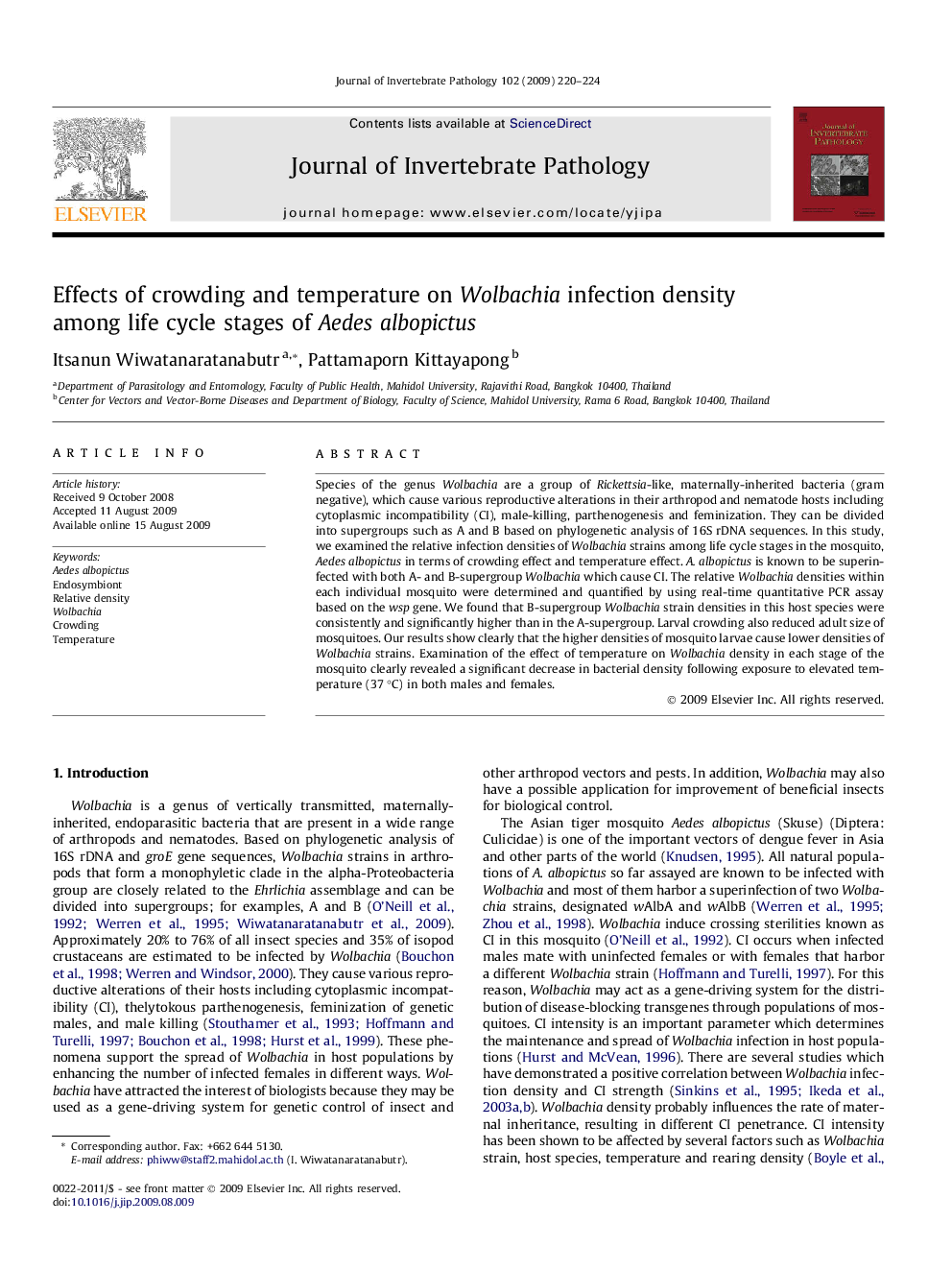| Article ID | Journal | Published Year | Pages | File Type |
|---|---|---|---|---|
| 4558194 | Journal of Invertebrate Pathology | 2009 | 5 Pages |
Species of the genus Wolbachia are a group of Rickettsia-like, maternally-inherited bacteria (gram negative), which cause various reproductive alterations in their arthropod and nematode hosts including cytoplasmic incompatibility (CI), male-killing, parthenogenesis and feminization. They can be divided into supergroups such as A and B based on phylogenetic analysis of 16S rDNA sequences. In this study, we examined the relative infection densities of Wolbachia strains among life cycle stages in the mosquito, Aedes albopictus in terms of crowding effect and temperature effect. A. albopictus is known to be superinfected with both A- and B-supergroup Wolbachia which cause CI. The relative Wolbachia densities within each individual mosquito were determined and quantified by using real-time quantitative PCR assay based on the wsp gene. We found that B-supergroup Wolbachia strain densities in this host species were consistently and significantly higher than in the A-supergroup. Larval crowding also reduced adult size of mosquitoes. Our results show clearly that the higher densities of mosquito larvae cause lower densities of Wolbachia strains. Examination of the effect of temperature on Wolbachia density in each stage of the mosquito clearly revealed a significant decrease in bacterial density following exposure to elevated temperature (37 °C) in both males and females.
